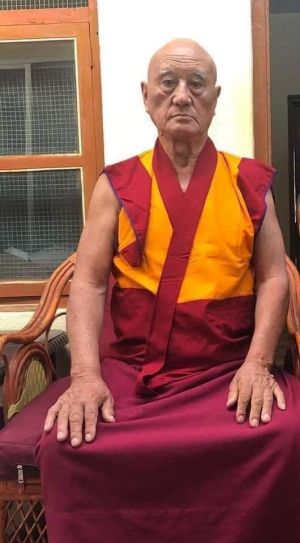Tibetan Buddhist scholar in rare meditative state of Thukdam after 20 days of clinical death
Dharamshala: Twenty days has passed since Geshe Tenpa Dhargyal, a Buddhist scholar at Gaden Jangtse Monastery in South India was declared clinically dead, but has since shown no signs of physical decay or depletion.
He is believed to be in what the Tibetan Buddhists describe as the rare meditative state of Thukdam.
Read the exclusive report of the Department of Religion and Culture here.
Thukdam (Tib: ཐུགས་དམ་) is a Buddhist phenomenon in which realised master’s consciousness remains in the body despite its physical death.
Though they are declared clinically dead, their bodies show no signs of decay and are found to remain fresh for days or weeks without preservation.
According to Tibetan Buddhist literature, there is a certain glow on their face and a warmth in their body as a normal living person would.
Thukdam is a Tibetan word with “thuk” meaning mind and “dam” standing for samadhi or the meditative state.
Scientific inquiry into this phenomena has already begun a few years ago under the initiative of His Holiness the Dalai Lama.
Geshe Tenpa Gyaltsen was born on 23 April 1934 in Kham Tawo, to mother Lobsang Lhamo and father Lobsang Bumram.
At the age of 20, he joined the Gaden Jangtse Monastery in Tibet.
In 1959, he escaped to India along with tens of thousands of others after the Chinese Communist Party illegally occupied Tibet.
Geshe Dhargyal spent the initial years at Buxar Choegar (Dharma Center), the first monastic facility established for Tibetans in 1959.
He later moved to South India.
Geshe Lobsang Dharygal was a well-learned Buddhist practitioner and had spent years studying the major canons of Tibetan Buddhism.
